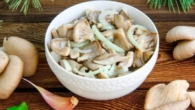
A gastroenterologist told how to gently relieve symptoms
0
Crohn's disease: a complex disease with many possible causes. It is a chronic inflammation of the intestinal mucosa that spreads to individual areas.
The exact causes of Crohn's disease are still not understood. It is believed that several factors contribute to the development of the disease, including genetic factors, impaired intestinal barrier function, changes in the intestinal microbiome, and environmental factors.
Genetic factors
Crohn's disease can be inherited. Researchers have identified various genes that can be altered in this disease.
“An example of such a gene is NOD2 (= CARD15), which contains the receptor circuit. This regulates the release of the body's own antibiotics (defensins) in the small intestine,” says gastroenterologist Oleksandra Adisova.
The role of the intestinal microbiome
Microbial life in the gut may play a role in the development of Crohn's disease. It was found that patients have a high level of the specific bacterium Myobacterium avium ssp. paratuberculosis (abbreviated MAR) was detected.
“This bacterium causes a disease in cattle with symptoms similar to Crohn's disease.”
Environmental factors< /p>
Environmental factors can also increase the risk of Crohn's disease. Smoking increases the risk of disease. Other possible influencing factors include eating habits, hygiene and breastfeeding status.
Nutrition for Crohn's disease
“A special diet cannot cure Crohn's disease, but it can relieve the burden on the digestive tract and prevent non-specific intolerance, such as pressure, bloating, or flatulence,” explains the gastroenterologist.
For example, a light, whole food diet is a complete, balanced diet that provides the body with all the necessary nutrients. It is recommended not only for chronic inflammatory bowel diseases, but also for other diseases of the gastrointestinal tract.
What is a light diet?
A light, whole food diet is a balanced diet that provides the body with all the necessary nutrients in sufficient quantities.
“Unlike a “normal” whole food diet, a light, whole food diet avoids foods and drinks that are often poorly tolerated by gastrointestinal diseases.”
Foods to avoid
Foods that are often poorly tolerated in Crohn's disease include:
- Fresh bread
- Strong cheeses
- Hard-boiled eggs
- Whole milk and dairy products
- Fried potatoes
- Unripe fruits
- Fatty soups and sauces
- Spicy seasonings
- Fatty fish
- Alcoholic beverages
- Chocolate and confectionery
- Smoked and fatty meats
- Carbonated drinks
- Heavily fried or fried foods
- High concentrations of sugar and salt
- Whole grain bread
- Mayonnaise.
Individual tolerance and dietary adjustments
It is important to know that each person reacts differently to food and drink. This is why you should try which foods and in what quantities you can tolerate.
“If you have an intestinal disorder such as Crohn’s disease and areas of the intestine are narrowed, you should limit your intake of foods rich in fiber.”
General nutritional advice
It is beneficial to eat more often and in small portions throughout the day, taking enough time to eat and chewing each bite thoroughly. Avoid foods that are too hot, too cold, too sour, or too spicy.
Diet during an exacerbation
During an attack, the stomach and intestines need special care. Most patients can tolerate a light, low-fiber diet.
“In some cases, temporary artificial nutrition through a drip may make sense,” says Alisova.









Leave a Reply